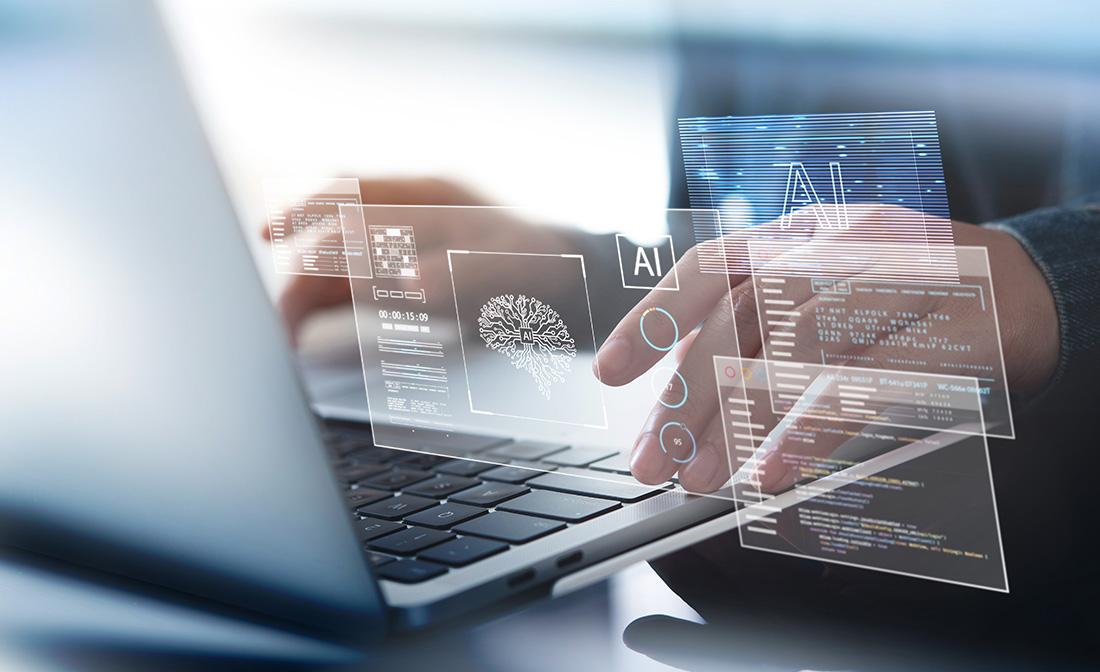Enterprise resource planning (ERP) systems have long been an essential part of successful business operations.
By integrating various processes including accounting, supply chain management, human resources, manufacturing, and more into a centralized platform, ERP software provides organizations with:
-
Enhanced oversight
-
Improved efficiency
-
Powerful analytical capabilities, and more.
However, traditional ERP systems can be complex and rigid in their workflows, and often fail to adapt quickly to emerging technologies. This landscape is now undergoing a major shift with the rapid advancement and integration of artificial intelligence (AI) capabilities as well as the development of flexible frameworks like 1C:Enterprise.
The Role of AI in ERP Systems
AI technologies such as machine learning, natural language processing, computer vision, and predictive analytics can be seamlessly incorporated into stable, proven solutions built on the 1C:Enterprise platform. This brings cutting-edge innovation into the more conservative ERP space in a thoughtful, phased manner.
Key Benefits of AI Integration:
-
Optimized workflows
-
Uncovered valuable data insights
-
Increased productivity
-
New dimensions of flexibility across finance, manufacturing, supply chain, HR, and more.
With the right adoption strategy, companies can gradually evolve their ERP infrastructure to support more agile, strategic, and proactive operations, leading to:
-
Reduced costs
-
Accelerated processes
-
Maximized performance potential
The Rise of AI Across Industries
In recent years, the business landscape across virtually every industry has been fundamentally reshaped by the rapid emergence and maturation of AI.
What is AI?
AI refers to the broad category of technologies designed to emulate human cognition in order to execute tasks ranging from sophisticated problem-solving to understanding nuances in natural language. With the dramatic improvements in:
-
Computational power
-
Access to vast troves of data
-
Development of advanced neural network algorithms
AI's application has spread extensively into diverse operating environments and business use cases.
Impact of AI in Various Industries:
-
Healthcare: Machine learning algorithms analyze complex medical data sets to aid in diagnosis, treatment planning, and predictive outcomes, driving significant improvements in patient health.
-
Finance: AI techniques are employed for:
-
Fraud detection
-
Automated advisors
-
Sentiment analysis
-
Regulatory compliance and reporting
-
Predictive financial modeling
-
Retail: AI creates personalized omnichannel customer experiences, dynamically manages inventory, optimizes complex supply chain dynamics, and targets marketing campaigns.
-
Manufacturing: Organizations adopt AI-powered robots, utilize computer vision for quality control, and implement predictive maintenance to reduce equipment downtime.
-
Other Sectors: Agriculture, logistics, and energy are leveraging AI algorithms to:
-
Predict crop yields
-
Model delivery routes
- Optimize energy consumption
The Major Types of AI Transforming the ERP Landscape
Machine Learning
Perhaps the most ubiquitous and flexible type of AI, machine learning algorithms enable computers to learn, model, and automate processes by analyzing large data sets. In ERP systems, common applications include:
-
Improving demand forecasting by processing historical data
-
Automating customer segmentation for targeted marketing based on behavioral data
-
Predicting potential equipment failures to shift maintenance from reactive to preventative
In summary, the integration of AI into ERP systems, particularly through platforms like 1C:Enterprise, is set to revolutionize business efficiency and unlock new potential for organizations across various industries.
Natural Language Processing
This branch of AI focuses on enabling meaningful interaction between computers and human languages. Chatbots utilized in customer service to handle routine queries are one common example. NLP techniques are also now regularly used for sentiment analysis - automatically translating unstructured customer feedback from surveys, reviews, social media, and other sources into tangible insights to guide business decisions. Incorporating NLP into an ERP system elevates customer engagement and greatly streamlines data analysis.
Predictive Analytics
This umbrella term covers a wide variety of statistical techniques and AI methods such as data mining, predictive modeling, and machine learning. The goal is to analyze current and historical facts and patterns in order to make probabilistic predictions about future events, behaviors, and trends.
In a business context, this can be leveraged to:
-
Forecast customer churn
-
Anticipate market movements
-
Identify potential bottlenecks in a supply chain
- And much more.
Computer Vision
This rapidly advancing technology enables machines to dynamically interpret and make sense of visual data from the real world, such as images, videos, and live camera feeds.
Applications:
-
Retail: Automated checkout processes.
-
Healthcare: Analyzing diagnostic imaging and supporting clinical decision-making.
-
Manufacturing: Visually monitoring production lines, flagging anomalies, and enforcing quality control in real-time.
This feeds back into an ERP system to drive real-time operational adjustments, improve end product quality, and reduce waste.
Integrating Advanced AI Capabilities with 1C:Enterprise Solutions
Many of today's most sophisticated enterprise-scale AI solutions are built on advanced programming languages like Python and made accessible via API services. 1C:Enterprise provides a flexible framework that is well-equipped to integrate with these AI tools, whether they are:
-
Public cloud services
-
Commercial AI products
-
Custom in-house platforms
Using JSON, REST APIs, web services, and other modern integration technologies, the 1C:Enterprise platform can seamlessly meld advanced AI capabilities with its robust set of ERP workflows and business logic.
With a bit of upfront technical integration, diverse AI functionalities can be embedded into the various 1Ci ERP modules including accounting, inventory, HR, manufacturing, sales, and more.
This enables businesses to keep pace with the latest innovations in the AI space while still preserving and maximizing value from their existing ERP investment - offering the best of both worlds.
Use Case: AI-Powered Recruiting and Candidate Matching with 1C:Enterprise
To highlight a real-world example, our team has implemented an AI-based resume screening and candidate matching service using 1C:Enterprise integrated with a set of Python-based natural language processing and machine learning algorithms provided by JobMatchMaster.
How It Works:
-
The service scans submitted resumes and job descriptions.
-
Leverages NLP to extract relevant keywords, skills, qualifications, and more.
-
Automatically matches candidates to open positions they would be well-suited for.
Not only does this automation significantly accelerate the recruitment workflow, but it also adds a layer of intelligence by algorithmically ranking and prioritizing candidates based on multi-factor matching with vacancies.
The system can be customized to weigh certain skills or qualifications higher than others per the hiring manager's discretion.
This use case concretely showcases how 1C:Enterprise's flexible architecture allows for smooth integration with cutting-edge AI innovations, enhancing business operations in an impactful way.
Conclusion
The growing integration of artificial intelligence capabilities into enterprise resource planning platforms represents a genuinely transformative shift - and not just an incremental upgrade. AI technologies are fundamentally redefining the boundaries and limitations of traditional ERP systems, introducing unprecedented levels of automation, analytical foresight, and contextual decision-making intelligence.
1C:Enterprise serves as an excellent example of how this transformation can be strategically achieved. Its robust, scalable, and customizable architecture provides a strong foundation for organizations to implement impactful AI innovations while maintaining their core ERP investments.
With 1C:Enterprise, businesses can tap into the latest advancements in:
-
Machine learning
-
Natural language processing
-
Predictive analytics
-
Computer vision
-
Other AI areas
This enables them to navigate an increasingly complex and volatile business landscape with greater agility and intelligence.
The result is a modernized ERP environment capable of supporting more informed decisions, strategic forecasting, proactive operational adjustments, optimized workflows, enhanced customer experiences, and reduced costs.
1C:Enterprise empowers businesses to maximize the multifaceted advantages of AI-driven insights and automation.







